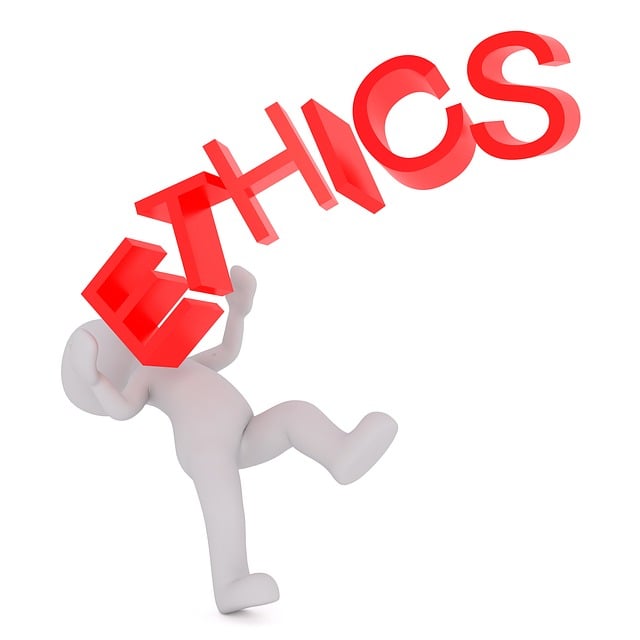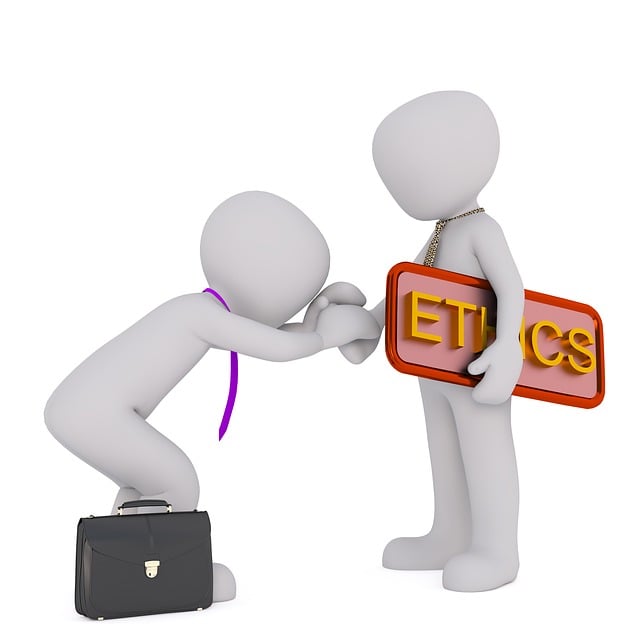The UK Code of Conduct and Ethics requires precise and nuanced translation services to maintain its integrity across different cultures and languages. Specialized translation providers with expertise in legal and ethical documentation are essential for ensuring that the original intent and meaning of these codes are accurately conveyed. These services employ bilingual legal experts and cultural consultants who work together to adapt the content faithfully, ensuring it is both legally accurate and culturally relevant. This is particularly important for international businesses operating in the UK, as it allows for consistent ethical compliance across a multicultural workforce. By using professional UK Code of Conduct and Ethics translation services, organizations demonstrate their commitment to upholding high standards of integrity and respect for cultural diversity, thereby enhancing their credibility on the global stage.
Navigating the complexities of global operations necessitates clear, precise communication across all languages involved. This article delves into the critical domain of translating codes of conduct and ethics, with a particular focus on the UK Code of Conduct and Ethics translation services. It outlines the challenges inherent in such translations, the importance of cultural nuances, and best practices to ensure accuracy and clarity. From understanding the significance of these translations to selecting a reliable service provider, this piece provides a comprehensive guide to the multifaceted process of conveying ethical standards universally.
- Understanding the Significance of Translated Codes of Conduct and Ethics
- The Role of UK Code of Conduct and Ethics Translation Services
- Challenges in Translating Codes of Conduct Across Languages
- Key Considerations for Accurate Translation of Ethical Guidelines
- The Importance of Cultural Context in Code Translation
- Best Practices for Translating Legal and Ethical Texts
- Case Study: Successful Translation of the UK Code of Conduct
- Selecting a Reliable Translation Service Provider for Ethical Documents
- Ensuring Consistency and Clarity in Multilingual Codes of Conduct and Ethics
Understanding the Significance of Translated Codes of Conduct and Ethics

Navigating the complexities of global business necessitates a clear and precise understanding of ethical standards across different cultures. Translated codes of conduct and ethics play a pivotal role in this regard, ensuring that organisational values and expectations are communicated effectively to all stakeholders, irrespective of their linguistic or cultural backgrounds. The UK Code of Conduct and Ethics translation services are instrumental in this process, offering accurate and contextually relevant translations that maintain the integrity and intent of the original text. These services not only facilitate compliance with local regulations but also foster a culture of transparency and accountability. By employing experts in linguistic nuances and ethical frameworks, these translation services bridge the gap between multinational corporations and their diverse workforces, ensuring that ethical guidelines are universally understood and followed. This is particularly crucial for companies operating in multiple jurisdictions, where the nuances of language and the intricacies of legal systems can greatly influence the interpretation and application of ethical standards. Thus, the accuracy and cultural sensitivity provided by UK Code of Conduct and Ethics translation services are indispensable for maintaining a global standard of integrity and ethical conduct.
The Role of UK Code of Conduct and Ethics Translation Services

In the realm of global business and cooperation, clarity in communication is paramount, especially when it comes to translating ethical standards and codes of conduct. The UK Code of Conduct and Ethics serves as a critical guide for organisations and individuals alike, mandating ethical behavior and integrity across various operations. To ensure these guidelines are effectively understood by diverse audiences, translation services play a pivotal role. UK Code of Conduct and Ethics translation services bridge the linguistic gap, providing accurate and contextually relevant translations that maintain the original intent and precision. These services employ expert linguists who specialise in legal and ethical terminology, ensuring that the nuances and subtleties inherent in such texts are conveyed accurately into other languages. This is not just a matter of word-for-word translation but involves a deep understanding of cultural contexts to avoid misinterpretation or oversimplification of complex concepts. By doing so, UK Code of Conduct and Ethics translation services facilitate global compliance with ethical standards, fostering trust and reliability in international markets.
The importance of these translation services cannot be overstated, particularly for companies with international operations. A company’s reputation can be significantly impacted by how well it communicates its ethical stance across different cultures. The translators who work within UK Code of Conduct and Ethics translation services are trained to navigate the complexities of language and culture, ensuring that the message remains consistent and clear. This is achieved through rigorous quality control processes and adherence to professional translation standards. As a result, businesses can operate with confidence, knowing that their ethical frameworks have been accurately conveyed, thus upholding their integrity and credibility on the global stage.
Challenges in Translating Codes of Conduct Across Languages

Navigating the intricacies of translated codes of conduct requires a nuanced approach, particularly when bridging linguistic and cultural differences. The UK Code of Conduct and Ethics translation services face significant challenges that extend beyond mere word-for-word translations. Language subtleties and cultural contexts often influence ethical principles, making it imperative for translators to possess not only linguistic expertise but also a deep understanding of the cultural nuances embedded within ethical frameworks. Translating such documents necessitates a careful selection of words that convey the same meaning and ethical intent across different languages. This is crucial to maintain the integrity and clarity of the original content, ensuring that all parties involved, regardless of their linguistic background, can understand and adhere to the shared standards of conduct. The process involves meticulous attention to detail, with translation services employing subject matter experts who work alongside professional translators to guarantee the codes’ ethical essence is preserved in translation. This collaborative effort is essential to overcome the inherent complexities of cross-cultural communication and to uphold the principles of integrity and respect across diverse linguistic communities.
Key Considerations for Accurate Translation of Ethical Guidelines

When translating ethical guidelines, such as the UK Code of Conduct and Ethics, precision and cultural sensitivity are paramount to maintain the original intent and application. Key considerations for accurate translation include a deep understanding of both the source and target languages, as well as the cultural nuances that may affect the interpretation of ethical principles. Translators must be adept at converting technical terms and industry-specific jargon into equivalents that resonate within the linguistic and cultural context of the intended audience. This requires not only a mastery of language but also expertise in the field of ethics to ensure that the core values and expectations are accurately communicated. Utilizing UK Code of Conduct and Ethics translation services that offer bilingual professionals with specialized knowledge can bridge the gap between source and target languages, ensuring that translated documents reflect the authentic spirit and operational practicalities of the original guidelines. In addition to linguistic proficiency, these services should employ a rigorous review process involving subject matter experts who can validate the content’s integrity across different cultural frameworks. This multifaceted approach to translation ensures that ethical guidelines are both understood and adhered to in diverse international contexts, facilitating compliance and trust across organizations operating globally.
The Importance of Cultural Context in Code Translation

When translating codes of conduct and ethics, particularly from English to other languages or vice versa, it is imperative to consider the cultural nuances inherent in each language. The UK Code of Conduct and Ethics translation services that specialize in this field understand that direct word-for-word translation often fails to convey the original meaning within a new cultural context. This is because ethical standards are deeply rooted in societal norms, legal frameworks, and historical practices specific to each region. A code of conduct that resonates with individuals in the UK may not have the same impact when translated into another language without proper localization. For instance, what constitutes ‘fairness’ or ‘integrity’ might differ across cultures, affecting how these concepts are interpreted and adhered to. Thus, professional translation services employ experts who are adept at navigating cultural nuances, ensuring that the translated code not only communicates the original intent but also aligns with the cultural sensibilities of the target audience. This is crucial for maintaining the integrity and effectiveness of the UK Code of Conduct and Ethics in a global context, thereby fostering trust and reliability across diverse stakeholders.
Best Practices for Translating Legal and Ethical Texts

When translating legal and ethical texts such as the UK Code of Conduct and Ethics, precision and accuracy are paramount to convey the original intent effectively. The nuances in legal language can be particularly challenging, as they often involve complex concepts that require a deep understanding of both languages and legal systems involved. To ensure clarity in translated codes of conduct and ethics, translators must adhere to best practices that include a thorough grasp of both source and target language legal terminologies, cultural nuances, and the specific context within which these documents operate. Utilizing specialized translation services, such as those offering UK Code of Conduct and Ethics translation, can provide the expertise necessary to navigate these complexities. These services typically employ bilingual legal experts who are well-versed in both the source and target languages’ legal vocabularies and frameworks. They also employ a rigorous quality assurance process to verify the translation’s accuracy, ensuring that the translated text aligns with the original in meaning and implication. This commitment to quality translations is essential for maintaining the integrity of ethical guidelines across different jurisdictions and for facilitating international understanding and compliance.
Case Study: Successful Translation of the UK Code of Conduct

When addressing the nuances of translated codes of conduct, particularly in a multilingual environment like the UK’s, it is imperative to engage with professional translation services that specialise in legal and ethical documents. The UK Code of Conduct and Ethics, being a foundational framework guiding professional integrity and conduct, demands precision in its translation to ensure cross-cultural applicability without compromising on the original intent. A case study that exemplifies successful translation is the approach taken by a leading translation service in converting the UK Code into multiple languages. This service employed a two-pronged strategy: firstly, translators with subject matter expertise in law and ethics were selected to ensure technical accuracy; secondly, these translators worked in tandem with cultural consultants who provided insights into how ethical principles are perceived within different linguistic and cultural contexts. The collaboration ensured that the translated Code retained its integrity while being accessible to a broader audience, thereby promoting adherence to professional standards across diverse communities. This successful translation demonstrates the effectiveness of combining expert knowledge with cultural sensitivity, showcasing the UK Code of Conduct and Ethics translation services as a model for similar endeavours globally.
Selecting a Reliable Translation Service Provider for Ethical Documents

When translating ethical documents such as codes of conduct, precision and cultural sensitivity are paramount to maintain the integrity of the original content. Organizations looking to expand their reach or operate within different jurisdictions, particularly in the UK, must ensure that their codes of conduct and ethics are accurately conveyed to new audiences. Selecting a reliable translation service provider is crucial for this task. A provider with expertise in legal and ethical document translation will be adept at navigating the complexities inherent in such texts. It’s not just about translating words from one language to another; it’s about understanding the nuances of language that convey ethics, values, and professional standards. The chosen service should have a proven track record in delivering high-quality UK Code of Conduct and Ethics translation services, with a team of translators well-versed not only in linguistics but also in the ethical frameworks of both the source and target languages. This ensures that the translated document upholds the same moral integrity as the original and is reflective of the organization’s commitment to ethical practices on an international scale. Additionally, opting for service providers with certifications and a specialization in legal translations can provide further assurance of the quality and reliability of the translated documents.
Ensuring Consistency and Clarity in Multilingual Codes of Conduct and Ethics

When translating codes of conduct and ethics, maintaining consistency and clarity is paramount to ensure that the original intent and meaning are preserved across different languages. This is particularly relevant in a multilingual and diverse society such as the UK, where clear communication is essential for ethical compliance. Utilising professional UK Code of Conduct and Ethics translation services is key to this process. These services employ expert translators who not only understand the linguistic nuances but also the cultural contexts that can influence meaning. By adhering to a rigorous translation protocol, these services ensure that the translated codes reflect the same principles, values, and expectations as their original counterparts. This is crucial for organisations operating internationally, as it guarantees that all employees, regardless of language proficiency, receive uniform guidance on professional conduct. The consistency in terminology and concepts across various languages fosters a sense of fairness and equality, which is fundamental to the integrity of any organisation. In addition, employing these translation services demonstrates an organisation’s commitment to inclusive practices and respect for cultural diversity within its workforce. This commitment not only enhances the credibility of the organisation but also ensures that all stakeholders can engage with the codes in a manner that is both meaningful and effective.
In conclusion, the translated codes of conduct and ethics play a pivotal role in shaping organisational culture and guiding ethical decision-making across diverse linguistic communities. The UK Code of Conduct and Ethics translation services offer a critical bridge for clarity and consistency in these essential documents. By navigating the intricacies of language and cultural nuances, these services ensure that ethical guidelines are accessible and meaningful to all stakeholders, regardless of their native language. Adhering to best practices and employing expert translators with a keen understanding of legal and ethical verbiage is paramount for maintaining the integrity of the original content. The case study highlighting the successful translation of the UK Code exemplifies the positive outcomes achievable when precision and cultural sensitivity are prioritised in the translation process. Organisations looking to internationalise their standards must invest in reliable UK Code of Conduct and Ethics translation services to uphold their ethical commitments on a global scale, thereby fostering transparency, accountability, and trust.



